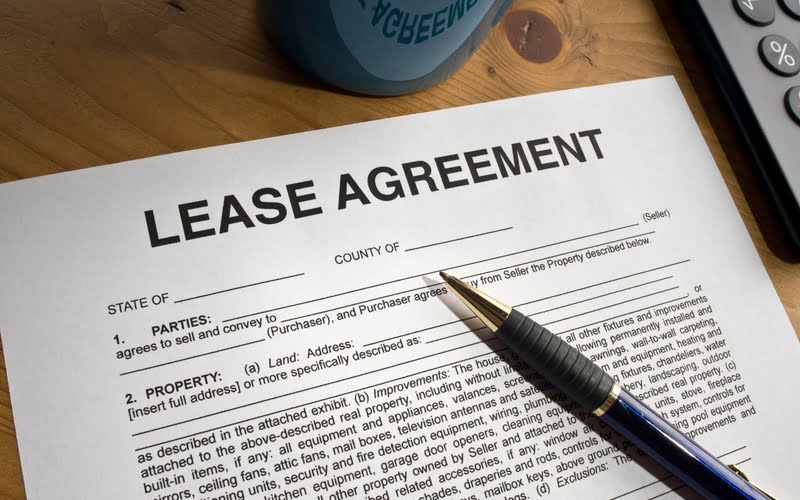Last Updated on March 18, 2024 by Kelvin Nielsen
Are you illegally subletting a rental property and want to know your rights as a tenant? If so, you are at the right place. Here’s everything you need to know regarding subtenant rights without a written agreement.
But first things first… who is a subtenant? Under California sublease law, a subtenant is someone who rents all or part of a property from a tenant (sub-landlord) without having a lease. A subtenant doesn’t have a direct relationship with the landlord.
With that in mind, without a written agreement, do subtenants enjoy any rights in California? Absolutely! Just because you don’t have a lease doesn’t mean you don’t enjoy certain rights under California law.
Subtenant Rights Without a Written Agreement in California
If you’re a subtenant without a lease, California law CA Civil Code 1940-1954.06, still grants you a number of rights.
#1: You have a right to quiet enjoyment.
You have a right to live in peace and quiet enjoyment. The landlord, sub-landlord, or their agents cannot engage in activities that disrupt your quiet enjoyment of the property.
For instance, it’d be illegal for the landlord or the sub-tenant to enter your unit unannounced. To enter your unit, they must first obtain your permission by sending you a 24 hours’ advance notice. The reason for the entry must also be legitimate. Such as, to inspect the unit, deliver a package, or under court orders.
#2: You have a right not to be retaliated against.
You have a right to exercise certain legal rights without being retaliated against. The landlord or the master tenant cannot, for instance, try to harass you for joining or forming a tenants’ union to advocate for your rights.
Aside from harassment, other forms of landlord harassment include failing to perform required or requested repairs, or withholding amenities promised in the lease.
#3: You have a right to a proper eviction process.
As a subtenant without a written agreement in California, you have a right to a proper eviction process. If the landlord wants to remove you, they must go through the proper eviction process.
Since you don’t have a lease agreement, the landlord would have to serve you a 30-day’s written notice to vacate the property. The 30-Day Notice to Vacate will give you 30 calendar days to move out.
If you move out within this time, great! However, if you choose not to, then the landlord may choose to file an eviction lawsuit against you in court. After being served with a copy of the Summons and Complaint, you’ll get an opportunity to respond to the allegations.
In the answer, the following are some of the reasons you can give to stop or delay your eviction.
- You actually had a lease agreement. Under California law, a lease between a landlord and a tenant can be established in either of three ways. That is, if there is an oral- or written agreement, or if the landlord accepts a payment as rent.
And since you’ve been paying rent directly to the tenant (sub-landlord/master tenant), then it’d mean that you may have a legal right to live there. However, it’s possible that the master tenant/sub-landlord may be in violation of the lease by illegally subletting the unit. In such a case, the landlord may have to evict both you and the tenant (sub-landlord/master tenant).
- The eviction notice had substantial errors. You may also be able to delay your eviction if the landlord fails to serve a proper notice.
- The eviction is a retaliatory act. Even without a lease, you still enjoy a number of rights under CA laws. Among these is the right to withhold rent for repairs.
- The landlord tried to evict through unjust means. A CA landlord cannot try to evict a tenant through illegal means such as removing their tenants’ belongings, shutting down utilities, or locking a tenant out. The following is a list of other things a landlord cannot do in California.
Only a court order can legally remove a tenant from a rental property.
#4: You have a right to a proper rent raise.
The sub-landlord/master tenant cannot just raise your rent without abiding by the relevant laws. Among other things, they must provide you a 30 days’ advance notice, as well as observe retaliatory and discriminatory laws.
That said, some limitations exist as to what you can do as a subtenant without a lease in California. For instance, you may not be able to sue the landlord for breach of contract if the sub-landlord/master tenant fails to uphold their responsibilities.
Illegal Subletting Consequences in California
First and foremost, what exactly is ‘illegal subletting’ under California sublease law? This is where a tenant rents out their rented property to another person without the express permission of the landlord.
In fact, state law doesn’t grant tenants, by default, the right to sublease. For you to sublet your rented premises, you must get written consent from your California landlord.
So, what are the illegal subletting consequences under California law? While the individual consequences will vary depending on the circumstances, the following are some of the common consequences.
- Eviction of the sub-landlord/master tenant for violating the lease agreement.
- The sub-landlord/master tenant may be held liable for the rent balance of the sub-tenant.
- The tenant may risk a lawsuit for any damages, such as lost rent or damage exceeding normal wear and tear.
Conclusion
There you have it – everything you need to learn about subtenant rights without a written agreement in California. But as can be seen, those rights have their limitations. You cannot, for instance, sue the landlord for breach of contract. After all, you don’t have a lease directly with them.
Ideally, if you have to sublet a property, insist on signing a lease with the sub-landlord/master tenant. This way, you’ll be able to enjoy all CA renter’s rights without any limitations.
Disclosure: The content herein isn’t a substitute for advice from a professional attorney. It’s only meant to serve educational purposes. If you have a specific question, kindly seek expert attorney services.
Sources: https://leginfo.legislature.ca.gov/, https://www.lawdepot.ca/, https://www.courts.ca.gov/documents/California-Tenants-Guide.pdf, https://www.hud.gov/states/california/renting/tenantrights,

Hi, I’m Kelvin Nielsen, an experienced landlord and accomplished real estate lawyer. My focus is on answering your questions about renting in the hopes of making your life as a renter or a landlord a bit easier.







